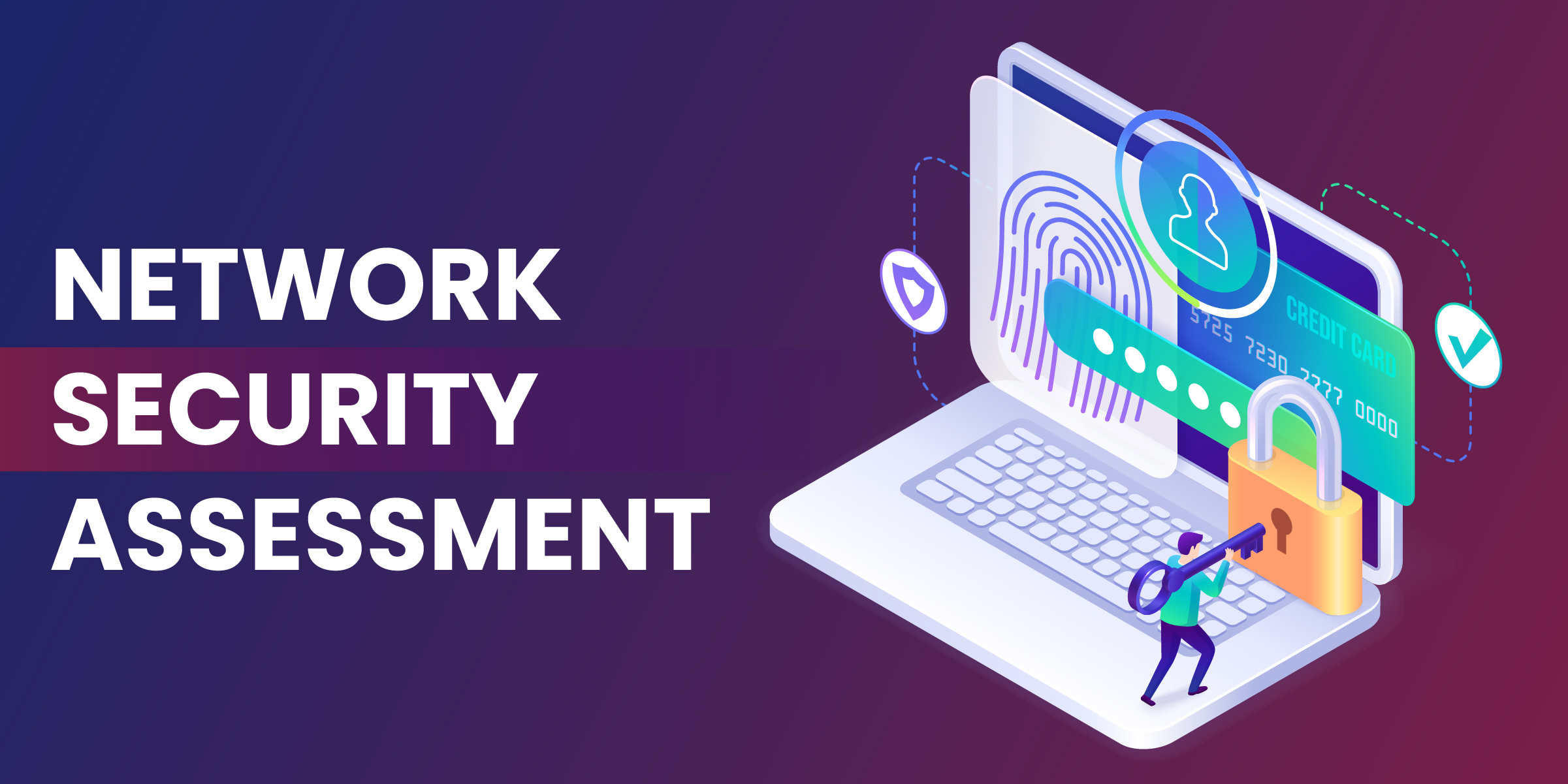Network Security Assessment
A Network Security Assessment evaluates your organization’s network infrastructure to identify vulnerabilities, assess risks, and improve overall security. This comprehensive service helps safeguard sensitive data, prevent unauthorized access, and ensure compliance with industry standards. It includes penetration testing, configuration reviews, and security audits.
What is Network Security Assessment ?
A Network Security Assessment is an in-depth process designed to analyze and strengthen your network’s defense mechanisms. It identifies weaknesses in your network infrastructure, evaluates potential security risks, and offers solutions to enhance your security posture.
This service involves reviewing your network’s architecture, firewalls, routers, switches, and other critical components to identify vulnerabilities, gaps in security configurations, and non-compliance with best practices. It also includes penetration testing to simulate potential cyber-attacks and test the effectiveness of existing security measures.
Key elements of the assessment include:
- Vulnerability Scanning: Identifying potential entry points for cybercriminals.
- Configuration Reviews: Ensuring proper firewall, router, and switch configurations for secure network operations.
- Penetration Testing: Simulating attacks to identify exploitable vulnerabilities.
- Access Control Evaluation: Assessing user access privileges to ensure the principle of least privilege is followed.
- Intrusion Detection and Prevention: Evaluating your system’s ability to detect and prevent potential intrusions.
- Compliance Check: Reviewing your network’s adherence to industry standards like GDPR, HIPAA, or PCI-DSS.
By identifying vulnerabilities and implementing a robust security strategy, the assessment ensures your network is resilient against cyber-attacks and evolving security threats.
Why Network Security Assessment Matters ?
In today’s digital landscape, protecting your network infrastructure is more important than ever. A compromised network can lead to data breaches, financial loss, legal repercussions, and damage to your reputation. Here’s why a Network Security Assessment is critical:
- Identify Vulnerabilities: Regular assessments help identify and address weaknesses before attackers exploit them.
- Improve Threat Detection: Enhance your network’s ability to detect and respond to potential security breaches.
- Regulatory Compliance: Stay compliant with industry-specific regulations and avoid penalties for non-compliance.
- Protect Sensitive Data: Safeguard valuable customer and business data from cyber threats.
- Business Continuity: Secure your network to ensure uninterrupted operations and prevent costly downtimes.
- Risk Mitigation: Minimize the risks associated with security breaches by identifying and fixing potential vulnerabilities.
- Informed Decision-Making: Gain a clear understanding of your network’s security posture and make informed decisions for improvement.

Our Approach
Network Discovery and Vulnerability Scanning
- We start by mapping your entire network infrastructure and performing vulnerability scans to identify potential risks.
- This includes scanning for open ports, outdated software, and misconfigurations.
Penetration Testing and Threat Simulation
- Our experts conduct penetration tests and simulate real-world attacks to assess the effectiveness of your network’s defenses. This step helps identify any exploitable security holes.
Reporting and Recommendations
We provide a detailed report with findings, including identified vulnerabilities, threat analysis, and recommended actions.
This report will guide your team in improving network security through configuration changes, software updates, and security best practices.
Key Benefits
- Enhanced Security: Identify and fix vulnerabilities to secure your network against potential attacks.
- Regulatory Compliance: Ensure adherence to industry regulations like HIPAA, PCI-DSS, and GDPR.
- Increased Awareness: Gain a deeper understanding of your network’s security posture and threat landscape.
- Improved Risk Management: Proactively manage and mitigate security risks before they become major issues.
- Reduced Downtime: Minimize network downtime by addressing potential threats before they impact operations.
- Cost Savings: Prevent costly breaches and system failures by fortifying your network’s defenses.
- Confidence in Data Protection: Assure customers, partners, and stakeholders that your network is secure and reliable.